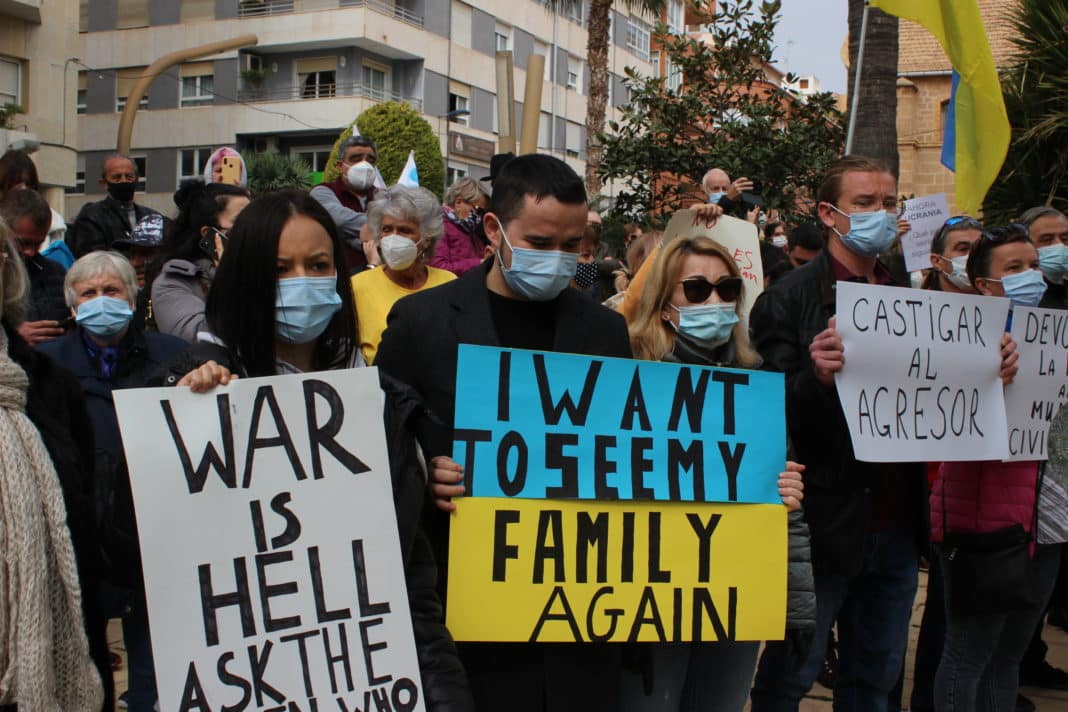Last week’s mobilisation of reservists is causing concern amongst the Russian community in Torrevieja, many of whom still have families back in their homeland.
“Seeing it on TV is one thing, believing what Russian channels tell you is another, but when it directly affects you and your family it is something completely different”. This is how the employee of a Russian supermarket in Torrevieja sums up the feelings of many of his fellow residents who live in the city, after the announcement by President Vladimir Putin of the partial mobilisation of 300,000 reservists to strengthen the war effort in Ukraine.
“No one talks about it, nor does anyone want to speak about it in public, but those of us who are here and have children of military age are relieved that they cannot be called up. Thankfully we are very far away, “says a middle-aged woman in the same supermarket when asked about the fear of forced recruitment that is now very much a reality amongst the general Russian population six months after the war began. “The regretful thing is that we will not be able to return to our homes in Russia for a very long time for fear of being located.”
No one who speaks to us will give us their name, no one is willing to appear in a photo. The spiral of silence, the one that validates a majority opinion because no one is willing to express what they really feel, also works effectively in Torrevieja, 4,000 kilometres from Moscow.
After more than 200 days of the war in Ukraine, the Ukrainian citizens forced to flee from their country now make up the second largest foreign population group in the city, only surpassed by the British and now far more than the number of registered Russian residents as more than one thousand three hundred new Ukrainian inhabitants have settled in Torrevieja in recent months.
Long gone are the days of large cash purchases. Of million-dollar investments in real estate at property exhibitions organised in the International Auditorium with municipal and Provincial support or the arrival of upper-middle class families who could afford to live in Torrevieja and Orihuela Costa without any problem, whilst still maintaining their economic activities back in Russia
Now the Russian tricolor flags, which flew freely until very recently, have disappeared from real estate and hotel establishments.
Globus is one of the main Russian associations in the city. Its headquarters is a unique Cyrillic union of bar, social lounge and library, sharing it’s large space with a real estate business. Tucked away in locked drawers amongst other items are the posters for the Russian film festival that brings it’s movie culture to the city every year, although this year, amongst the changes, the festival lost the “Russian” in its name. However, the alteration did not prevent hundreds of Ukrainian residents from protesting against the event outside the Municipal Theatre.
Amongst the members of the Russian association nobody wants to talk either, although for different reasons. They just ask us to leave. “We have made many statements since the conflict began to explain our point of view, but in all of them we have lost out to the Spanish media, so we have now been told not to speak to the press, “said a young woman when questioned by the Spanish media.
“We have lived in Torrevieja for 20 years. We are very far away,” says another middle-aged woman. They won’t say anything else.
The occupation of Crimea back in 2014 had already changed many things in the relationship between Russians and Ukrainians in Torrevieja. The two communities coexisted almost as one in many economic and cultural activities, used for mutual benefit by both communities. But now nationality is above everything. The differences are present in the daily life of both groups. In Torrevieja where they are now simply invaders and invaded.
And now, leaving Russia, which has been increasingly complicated since last February, is beginning to become a problem for Russian residents in the city, unless they have have a certain economic capacity. But with the mobilisation of ‘the innocents’ there is now a real exodus of Russian citizens that is being transferred to the prices of airline tickets, although at this early stage it is still too difficult to quantify.
Businessmen who continue to do business in Russia pay up to four thousand euros, often more, for two Alicante-Istanbul-Moscow plane tickets, while one round trip could be obtained non-stop for 300 euros at the beginning of the year.





